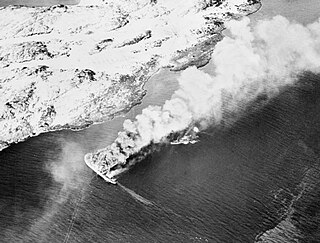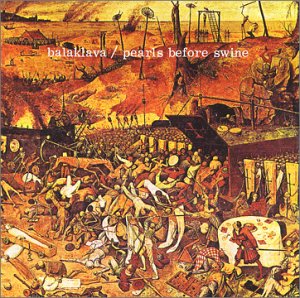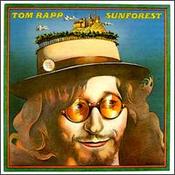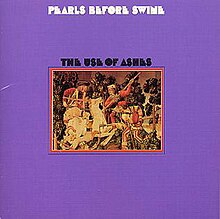
The Illustrated Man is a 1951 collection of 18 science fiction short stories by American writer Ray Bradbury. A recurring theme throughout the stories is the conflict of the cold mechanics of technology and the psychology of people. It was nominated for the International Fantasy Award in 1952.
Pearls Before Swine was an American folk rock band formed by Tom Rapp in 1965 in Eau Gallie, which is now part of Melbourne, Florida. They released six albums between 1967 and 1971, before Rapp launched a solo career.

Empty Sky is the debut studio album by British singer-songwriter Elton John, released on 6 June 1969. It was not issued in the United States until January 1975, with different cover art, well after John's fame had been established internationally.

Elton John is the second studio album by English singer-songwriter Elton John. It was released on 10 April 1970 through DJM Records. Including John's breakthrough single "Your Song", the album helped establish his career during the rise of the singer-songwriter era of popular music.

MS Rigel was a Norwegian vessel built in Copenhagen, Denmark, in 1924. The ship was used as a German prisoner of war (POW) transport during World War II, and was sunk by British Fleet Air Arm aircraft off Norway on 27 November 1944 with more than 2,500 dead, mostly POWs.

David William Logan Johnstone is a Scottish rock guitarist and vocalist, best known for his long-time collaboration with Elton John as a member of the Elton John Band.

Thomas Dale Rapp was an American singer and songwriter who led Pearls Before Swine, an influential psychedelic folk rock group of the late 1960s and early 1970s. Described as having "a slight lisp, gentle voice and apocalyptic vision", he also released four albums under his own name. He later practiced as a lawyer after graduating from University of Pennsylvania Law School in 1984.
"Skyline Pigeon" is a ballad composed and performed by English musician Elton John with lyrics by Bernie Taupin. It is the eighth track on his first album, Empty Sky. It was originally released by Guy Darrell and Roger James Cooke simultaneously as a single in August 1968.
"Come Down in Time" is the second track on Elton John's third album, Tumbleweed Connection, released in 1970. The lyrics were written by Bernie Taupin, Elton's long time writing partner. The song was originally recorded for John's second album, Elton John.

Balaklava was the second album recorded and released by psychedelic folk group Pearls Before Swine in 1968.

One Nation Underground is the debut album by American psychedelic folk group Pearls Before Swine. It was released on the ESP-Disk label in July 1967.

These Things Too is the third album by American psychedelic folk group Pearls Before Swine, and their first for Reprise Records. It was released in 1969.

City of Gold was the fifth album made by American psychedelic folk group Pearls Before Swine, and their third on Reprise Records. It was released in 1971.

... Beautiful Lies You Could Live In was the sixth album credited to American psychedelic folk group Pearls Before Swine, and their fourth on Reprise Records. It was released in 1971.

Familiar Songs is an album released on Reprise Records in 1972 by American singer-songwriter Tom Rapp, the leader of folk-rock group Pearls Before Swine. It was presented as his first solo album, although several previous albums credited to Pearls Before Swine had actually been recorded by Rapp with session musicians, rather than by a working group. The album is also sometimes known simply as Tom Rapp, because its title does not appear on the front sleeve.

Stardancer was the second solo album credited to American singer-songwriter Tom Rapp, the leader of folk-rock group Pearls Before Swine, and his first for Blue Thumb Records. It was recorded and first released in 1972.

Sunforest was the ninth album recorded by American singer-songwriter Tom Rapp, his second for Blue Thumb Records, and his final record before his lengthy retirement from the music industry after the mid-1970s.

"Empty Garden (Hey Hey Johnny)" is a song by English musician Elton John, written by John and Bernie Taupin, which first appeared on his sixteenth album Jump Up! released in 1982. It was the second single of the said album in the UK, and the lead single in the United States. The song is a tribute to John Lennon, who had been murdered 15 months earlier.
Rocket Man, Rocketman, Rocketmen, etc., may refer to:

"Rocket Man(I Think It's Going to Be a Long, Long Time)" is a song written by English musician Elton John and songwriter Bernie Taupin and performed by John. It was originally released on 17 April 1972 in the US, as the lead single to John's album Honky Château. The song first charted in the UK on 22 April, rising to No. 2 in the UK Singles Chart and No. 6 in the US Billboard Hot 100, becoming a major hit single for John.
















